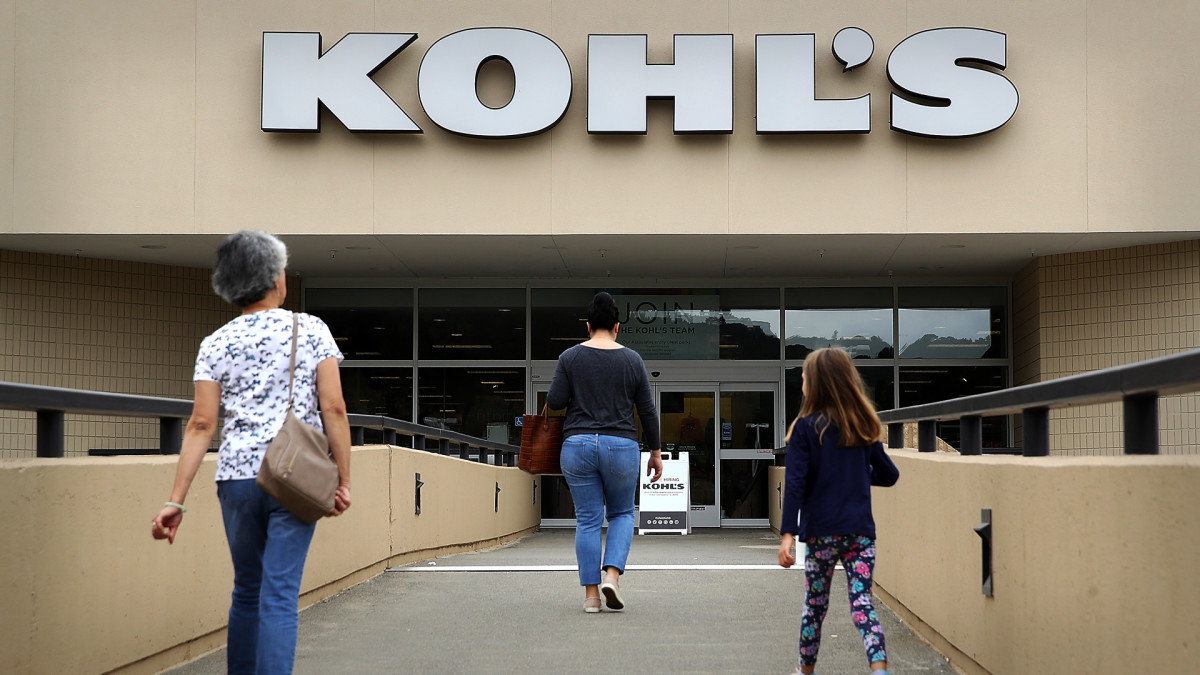
Kohl's' business is declining: The retailer's sales shrank 4.5% in its fiscal nine months from a year earlier.
The company has done a good job managing its decline as it remains profitable, but it's declining in that area as well. Profit for the first three quarters ended Oct. 28 came in at $131 million, roughly half the $254 million the retailer earned in the year-earlier period.
Kohl's (KSS) -) has managed its decline by spending less and having less inventory. The company presents that as a positive — a sign of discipline — but that's a two-edged sword. The chain needs new merchandise and an overall refresh, something it has been attempting to do while also being very careful with money.
Related: Bankrupt, liquidated retailer making a massive comeback
The retailer also has a digital sales problem. Chief Executive Tom Kingsbury addressed the matter during his company's third-quarter-earnings call.
"And the digital business, it's really what's bringing us down," he said.
The CEO cited online-only promotions and online-specific pricing as mistakes it made in building an omnichannel company.
"We felt that for our customers it was important that we have one view on pricing and obviously in 2023, that hurt our digital business," he added.
It's understandable that investors are not wild about the stock, which is off 8.3% in 2023 and down 72% since peaking in 2018. It does pay a $2-a-share dividend, which translates into an 8.6% yield.

Amazon faces its own struggles
Despite its massive success, e-commerce giant Amazon has not been without its failures. The retail part of the company has struggled in two very public ways.
First, aside from Whole Foods, which it purchased in 2017, Amazon (AMZN) -) has struggled mightily with brick-and-mortar retail. The company tried a chain of bookstores, which it closed, along with clothing stores and its "4-Star" stores, all of which it shuttered.
The company has also struggled with its Amazon Fresh grocery chain. That effort launched with what seemed like nationwide ambitions, but has grown very slowly.
Amazon has also struggled to find traction for many of its owned-and-operated clothing and furniture brands. That's not because the products are not good, but because consumers have shown some reluctance to buying clothes and furniture that they cannot try on or see in advance of purchase.
It's a hassle to return a bathing suit or pair of pants that don't fit. Sending back a couch or a bedroom suite that isn't what you wanted creates a whole new, much larger return problem.
Amazon has what Kohl's needs
Amazon and Kohl's are like two friends who don't realize they would be perfect together as a couple. If this were a Hallmark movie, we'd get a meddling best friend or an unexpected night stuck snowed in someplace cozy to make things happen.
The two brands already have a partnership in which Amazon customers can return items through the retailer. That deal should be expanded with a full-on partnership or even Amazon buying Kohl's.
The online leader has the digital infrastructure Kohl's needs. More important, it has the merchandise the company needs to differentiate its brand from rivals like Macy's and Target.
Imagine a wall of Amazon Basics electronics, a furniture section, and new clothing lines filled with Amazon's high-quality, but little-seen, brands. It's a marriage that makes sense because Kohl's has an impressive retail footprint and Amazon has numerous merchandise lines that are begging to be seen and touched.
Amazon also has an enormous amount of data about each market. It could use that to know which grab-and-go or awkward-to-ship items it should stock in each store.
In addition, the combined company could add Amazon Go convenience stores to some locations or even Amazon Fresh stores where space allows. A deal here clearly makes both brands better, and while the benefits to Kohl's are clearer, an expanded store base will also improve Amazon's ability to offer one-day and even same-day delivery.
Without a partnership, being acquired by Amazon, or some other major reset, Kohl's runs the risk of simply fading into irrelevance. Amazon does not face the same dire need, but it would be a lot easier to build off Kohl's base than creating new chains from scratch, so this deal would benefit both companies.
Amazon shares are up 75% this year after falling nearly 50% in the 2022 market slump.
Get exclusive access to portfolio managers and their proven investing strategies with Real Money Pro. Get started now.







